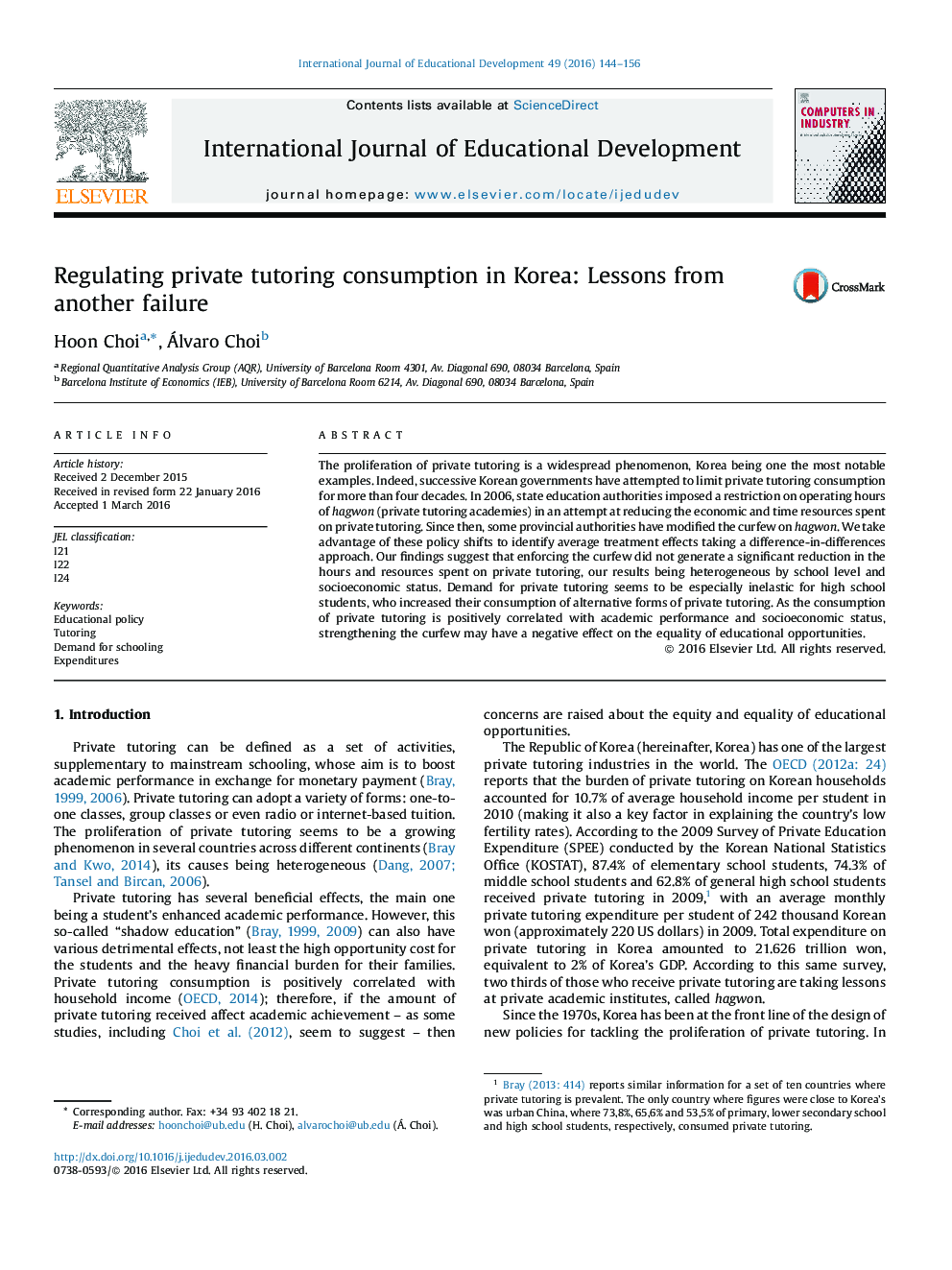| Article ID | Journal | Published Year | Pages | File Type |
|---|---|---|---|---|
| 6841207 | International Journal of Educational Development | 2016 | 13 Pages |
Abstract
The proliferation of private tutoring is a widespread phenomenon, Korea being one the most notable examples. Indeed, successive Korean governments have attempted to limit private tutoring consumption for more than four decades. In 2006, state education authorities imposed a restriction on operating hours of hagwon (private tutoring academies) in an attempt at reducing the economic and time resources spent on private tutoring. Since then, some provincial authorities have modified the curfew on hagwon. We take advantage of these policy shifts to identify average treatment effects taking a difference-in-differences approach. Our findings suggest that enforcing the curfew did not generate a significant reduction in the hours and resources spent on private tutoring, our results being heterogeneous by school level and socioeconomic status. Demand for private tutoring seems to be especially inelastic for high school students, who increased their consumption of alternative forms of private tutoring. As the consumption of private tutoring is positively correlated with academic performance and socioeconomic status, strengthening the curfew may have a negative effect on the equality of educational opportunities.
Related Topics
Social Sciences and Humanities
Social Sciences
Development
Authors
Hoon Choi, Álvaro Choi,
